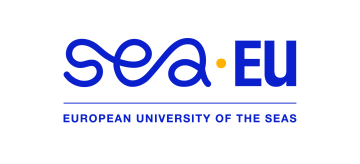Luísa Barreira, PhD in Environmental Sciences and Technologies - Aquatic Environment, Associate Professor of the Chemistry and Pharmacy Department of the Faculty of Sciences and Technology of the University of Algarve. She is a senior researcher of CCMAR, a member of the GreenCoLAB, and the co-leader of the Marine Biotechnology Group for I+D+I of Biotechnological Applications of Marine Organisms. Her work includes the use of microalgae for wastewater treatment and the role of microalgae and other marine organisms (e.g., seaweeds and halophyte plants) as bioproducers of added-value compounds (e.g. phospholipids, polyunsaturated fatty acids, pigments and bioactive natural products) to be used as ingredients for food and feed. She has participated in 24 projects, 16 involving microalgae having been the Principal Investigator of 2 national projects and the institutional coordinator (at CCMAR or UALG) of 4 other projects including the H2020, ALGAE4IBD from Nature to Bedside - Algae Based Bio Compound for Prevention and Treatment of Inflammation, Pain and IBD and the Horizon Europe, RHE-MEDiation, for the bioremediation of pollutants using microalgae. She has supervised 4 PhD students and is currently supervising 3 more. She has 96 papers published in peer-reviewed journals with over 3900 citations with a cumulative h-index of 38 (in Scopus).
The Algarve Centre of Marine Sciences (CCMAR-Algarve) is renowned as an outstanding research institution dedicated to marine science. Situated at the forefront of marine research, CCMAR-Algarve boasts a distinguished reputation for its contributions to understanding, conserving, and harnessing the potential of marine ecosystems. Located in the South of Portugal, Faro, CCMAR-Algarve is an independent non-profit research organization within the University of the Algarve system. It has the Portuguese Institute for Sea and Atmosphere (IPMA) as a strategic partner and, together with the Interdisciplinary Centre for Marine and Environmental Research (CIIMAR), constitutes the Associate Laboratory CIMAR. CCMAR-Algarve is the lead partner in the Portuguese branch of the European Marine Biological Resource Centre (EMBRC - ERIC).
CCMAR-Algarve’s main asset is its vibrant research community: a dynamic and multidisciplinary group of over 200 highly skilled and motivated people. Our challenges are systematically tamed by the research groups, working together under inspiring group leaders, most of which are also Professors at the University of the Algarve. All our researchers are supported by a well-established team of technical and administrative staff and make excellent use of the research resources available at CCMAR- Algarve - from well-equipped labs to tailored experimental facilities and scientific dive centre.
The MarBiotech group focus its main areas of research on different biotechnological exploitations of microalgae and other marine organisms as seaweeds and halophyte plants. It is led by João Varela and Luísa Barreira, both professors at the University of Algarve with complementary backgrounds covering sciences such as Biology, Molecular Biology, Biochemistry, and Analytical Chemistry. The group contributes to CCMAR’s research line “Marine Products and Resources” through the isolation of novel microalgal strains that have raised the interest of the industry for possible applications in the food and feed markets. It also invests on the improvement of novel and industrial strains using genetic strategies as random mutagenesis combined with selective pressure to produce strains with interesting phenotypes allowing for a better integration of microalgae in the food/nutraceuticals industry. This is combined with the ability of the group to evaluate the bioactivity of microalgal, and other biomass, extracts, and detect and isolate compounds with possible applications in the nutraceutical and pharmaceutical industries. Focusing on the industrial development of microalgae, the group works also in collaboration with microalgae producing companies for the characterization and manipulation of the bacterial microbiome of industrial microalgae cultures to increase industrial productivity of biomass and value-added compounds. Recently, the group has exploited the application of microalgae for environmental services as wastewater treatment and upgrade, and for the bioremediation of contaminated environments. This was the subject of several collaborations with companies for the tertiary treatment of urban and greenhouse wastewaters and with wastewater treatment plants in Turkey and Greece for the removal of micropollutants.
Biology
Molecular Biology
Biochemistry
Analytical Chemistry
Professor Kiron Viswanath - NORD
Monteiro I, Schüler LM, Santos E, Pereira H, Schulze PSC, Florindo C, Varela J, Barreira L (2023) Renewable Energy, 208, 693-701. https://doi.org/10.1016/j.renene.2023.03.103
Morais EG, Marques JCA, Cerqueira PR, Dimas C, Sousa VS, Gomes N, Teixeira MR, Nunes LM, Varela J, Barreira L (2022) Tertiary urban wastewater treatment with microalgae natural consortia in novel pilot photobioreactors. Journal of Cleaner Production, 378, 134521. https://doi.org/10.1016/j.jclepro.2022.134521
Silva M, Kamberovic F, Uota ST, Kovan I-M, Viegas CSB, Simes DC, Gangadhar KN, Varela J, Barreira L (2022) Microalgae as Potential Sources of Bioactive Compounds for Functional Foods and Pharmaceuticals. Applied Sciences, 12, 5877. https://doi.org/10.3390/app12125877
Lima AR, Gama F, Castañeda-Loaiza V, Salazar M, Nunes C, Quintas C, Gama F, Pestana M, Correia PJ, Santos T, Varela J, Barreira L (2020) Influence of cultivation salinity in the nutritional composition, antioxidante capacity and microbial quality of Salicornia ramosissima commercially produced in soilless systems. Food Chemistry, 333, 127525. https://doi.org/10.1016/j.foodchem.2020.127525
Schüler LM, Morais EG, Trovão M, Machado A, Carvalho B, Carneiro M, Maia I, Soares M, Duarte P, Barros A, Pereira H, Silva J, Varela J (2020) Isolation and Characterization of Novel Chlorella Vulgaris Mutants With Low Chlorophyll and Improved Protein Contents for Food Applications. Frontiers in Bioengineering and Biotechnology, 8, 469. https://doi.org/10.3389/fbioe.2020.00469
